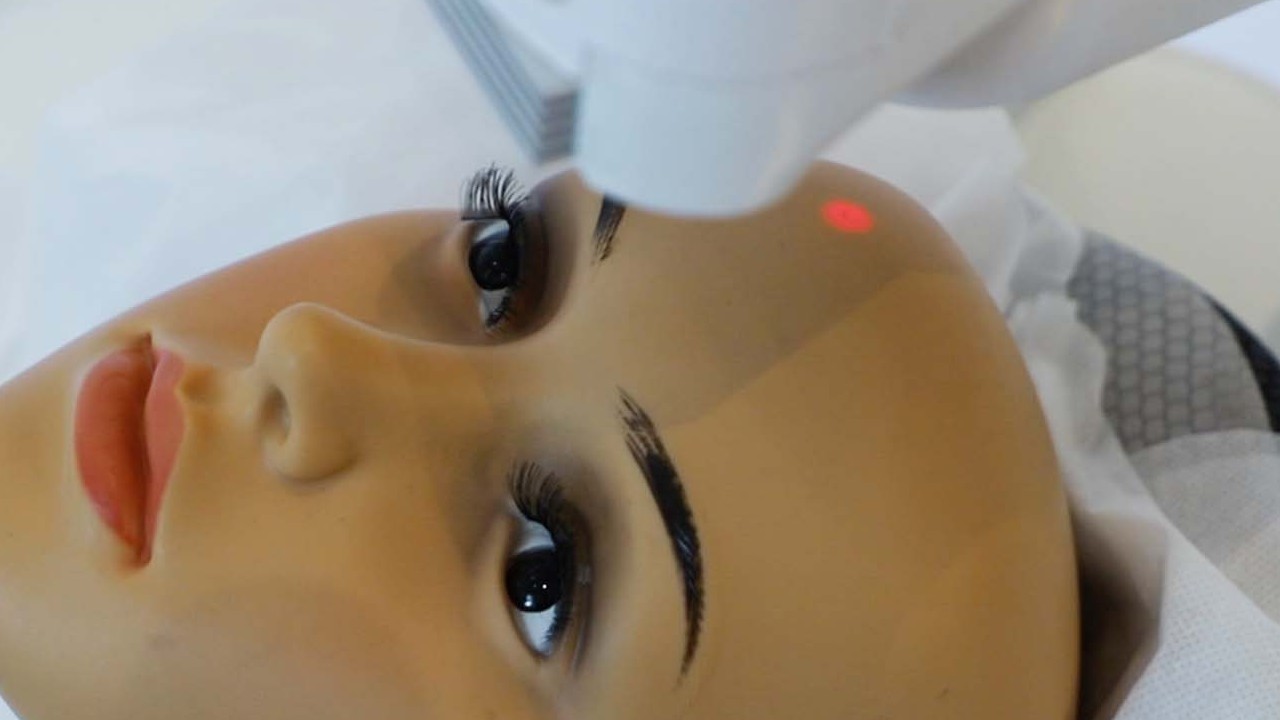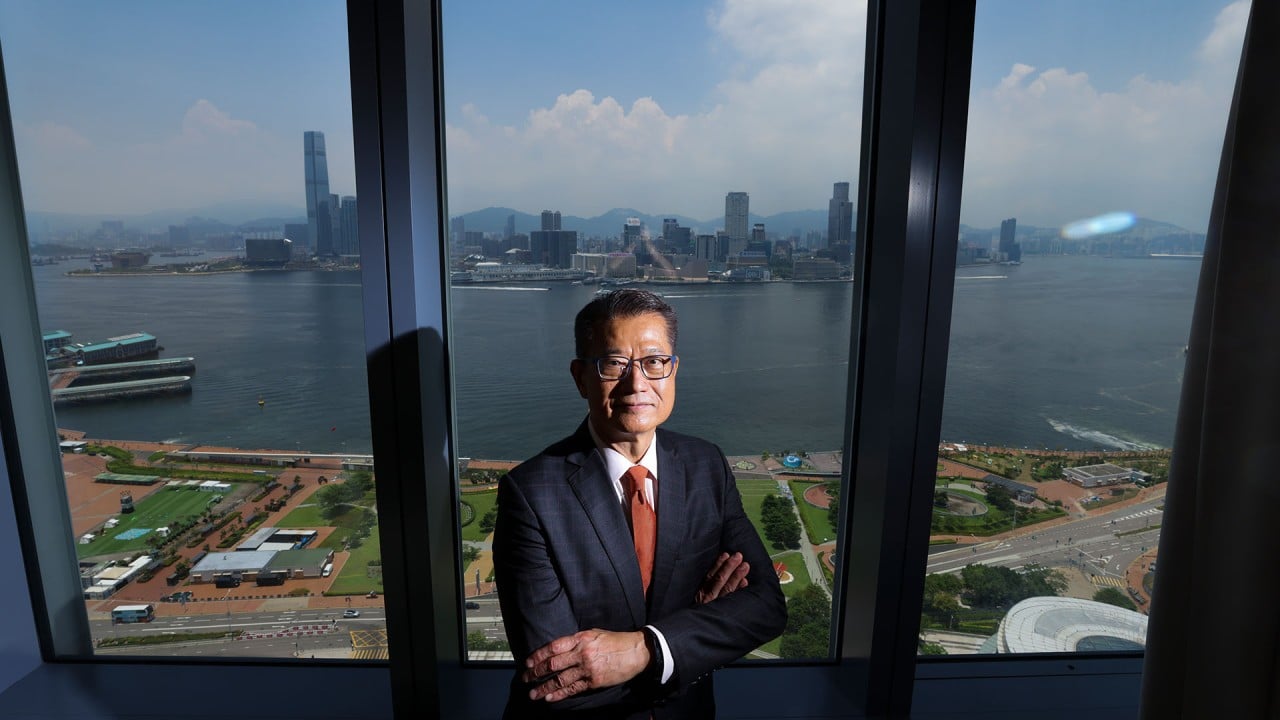
Hong Kong leader vows to fight for global talent with measures to be announced in maiden policy address in October, as technology chief promises clear innovation road map
- John Lee tells technology forum he is aware of calls for greater effort to ‘fight’ for talent, develop innovation sector in city
- Technology secretary Sun Dong highlights goal to lean on city’s strengths such as global ties and backing from China
Hong Kong’s leader has vowed to fight for and poach global talent, declaring a renewed push for the city to win in innovation and technology with new initiatives to be revealed in his maiden policy blueprint in October.
At a technology summit on Thursday, Chief Executive John Lee Ka-chiu cited participants from recent virtual consultation sessions who had urged the government to spare no effort in seeking success in the sector.
Describing how Hong Kong was now set to “transition from stability to prosperity”, Lee said this greater push would include “snatching” and “fighting” for more talent, using the Mandarin word qiang.
“I am told that we should seize opportunities to snatch top talent from across the world to Hong Kong. I totally agree with these views, and will put forward my thoughts and measures in the policy address,” he said, referring to the administration’s annual policy blueprint he is set to deliver on October 19.
Lee and several mainland Chinese officials spoke at the Global Innovation and Technology Summit organised by the Greater Bay Area Association of Academicians, a new platform initiated by six Hong Kong scholars of the Chinese Academy of Sciences and the Chinese Academy of Engineering.
The issue of brain drain from the city was regarded by Lee’s predecessor Carrie Lam Cheng Yuet-ngor as “unarguable” amid stringent Covid-19 restrictions and the ripple effects of the 2019 anti-government protests.
According to data from the Census and Statistics Department, Hong Kong’s population was 7.29 million as of June 30, a 2 per cent decrease from the 7.5 million recorded at the end of 2019.
Efforts to attract and retain talent have also been affected by the withdrawal of several foreign companies from Hong Kong, with the number of American firms operating regional headquarters in the city, for example, shrinking to 254 in 2021 from 282 one year earlier.
During his first Legislative Council question and answer session as chief executive on July 6, Lee said he had tasked the Commerce and Economic Development Bureau with devising new policies to bolster the city’s competitiveness, before reporting back to him in several months.
“The goal is to compete for talent with the rest of the world. If there is no talent, there is no competitiveness,” Lee said during the session, arguing Hong Kong’s vibrancy, transparency and rule of law were good starting points for attracting professionals.
According to a government source, the commerce bureau held numerous discussions on the subject over the past two months and was working hard on preparing a report for the chief executive.
Lee’s pledge was echoed by Secretary for Innovation, Technology and Industry Sun Dong, who also spoke at the summit at the Hong Kong Science Park. The minister said enriching the talent pool was a top priority for the administration, describing it as a vital step in elevating the city’s innovation capabilities.
“In the face of global waves of technological innovations, all places are snatching talents,” said Sun, who is also a professor of biomedical engineering.
“With Hong Kong’s strengths in internationalisation, we need to make greater efforts in nurturing and attracting talents from the mainland and overseas.”

He also vowed to provide a clear industry road map in the next five to 10 years, highlighting the government’s role to “lead, plan, invest and steer”.
Sun laid down several other priorities for the administration, including strengthening basic research capabilities, accelerating the development of smart city initiatives and pushing forward the development of the Hong Kong-Shenzhen Innovation and Technology Park in the Lok Ma Chau Loop.
Commerce minister Algernon Yau Ying-wah on Thursday also said Hong Kong should expand its talent hunt to include professionals from Central Asia, Asean countries and the mainland, instead of limiting the search to Europe and the United States.
Despite competition from places such as Singapore, the minister said, talents could definitely see Hong Kong’s potential, especially with its support from the mainland.
Yau added that it was only in the short term that certain companies were opting to leave the city because of various reasons, including the coronavirus and the geopolitical situation.
“I am very confident that they will definitely come back,” he said.
Under the latest five-year plan for the nation, Beijing vowed to “bring talent as the first resource into full play” and nurture more talents in high-tech industries, while Hong Kong was tasked to develop into an international innovation and technology hub.
At Thursday’s event, Wang Zhigang, an engineer who heads the Ministry of Science and Technology, pointed out that Chinese President Xi Jinping’s visit to the Science Park last month showed Beijing’s full support for Hong Kong to seize opportunities and better integrate into the national development plan.
He cited enhancements in the innovation capabilities of Shenzhen, Guangdong and Hong Kong in recent years. Wang added the ministry would continue to roll out funds and other initiatives to promote the sharing of resources within the Greater Bay Area, appealing to Hong Kong to leverage its strengths to serve the country’s needs.
The bay area is an ambitious plan to integrate Hong Kong, Macau and nine mainland cities in the Pearl River Delta into an economic powerhouse rivalling Silicon Valley.

Li Zexiang, an electronic and computer engineering professor at the Hong Kong University of Science and Technology, told the forum members the city lacked innovators and product managers who could commercially capitalise on research outcomes.
The academic noted that one-fifth of technology talents working in privately held start-up companies based in Shenzhen were educated in Hong Kong, using the example to urge local authorities to do more leverage the city’s human capital.
But lawmaker Tony Tse Wai-chuen warned that in addition to a shortage of information technology professionals, the city also had insufficient engineering and construction workers at a time when the government was putting HK$100 billion (US$12.74 billion) every year into the sector.
“To retain them, the government should think of packages that take into account salaries, family needs, work-life balance,” the surveyor and politician said, adding such measures were especially important when there was a lack of professionals and specialists.




